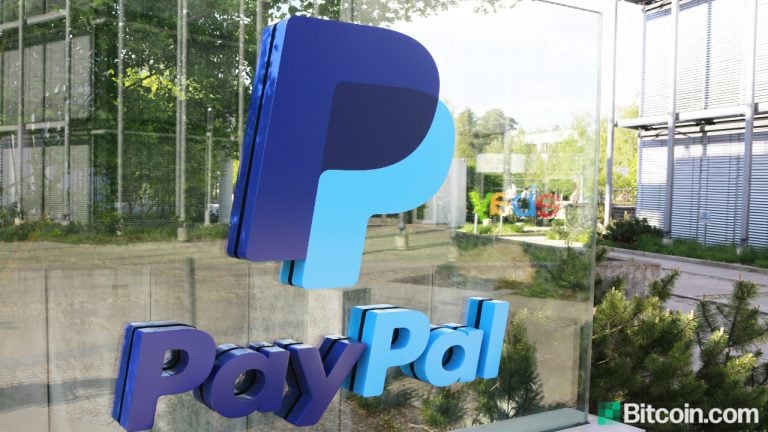
Payments giant Paypal has launched the “Checkout With Crypto” service to allow consumers to make payments at millions of merchants using cryptocurrencies in their Paypal wallets. “This is the first time you can seamlessly use cryptocurrencies in the same way as a credit card or a debit card inside your Paypal wallet,” said Paypal’s CEO.
Crypto Payments Through Paypal Now Enabled at Millions of Merchants
Paypal Holdings Inc. announced on Tuesday the launch of a new service called “Checkout with Crypto.” The announcement details:
Available at millions of global online businesses and continuing to expand over the coming months, Paypal customers with cryptocurrency holdings in the U.S. will be able to choose to check out with crypto seamlessly within Paypal at checkout.
“Checkout with Crypto will automatically appear in the Paypal wallet at checkout for customers with sufficient cryptocurrency balance to cover an eligible purchase,” the announcement adds. “All transactions are settled in USD and converted to the applicable currency for the business at the standard Paypal conversion rates.”
The currently supported cryptocurrencies are bitcoin, bitcoin cash, litecoin, and ether. The crypto payment service will be available at all of its 29 million merchants in the coming months, the company told Reuters, adding that it will charge no transaction fee for payments using cryptocurrencies and only one type of coin can be used for each purchase.
Paypal’s crypto payment service launch followed Elon Musk’s Tesla accepting BTC as a means of payment for its cars. However, Paypal merchants will be receiving fiat currency whereas Tesla Technoking Musk said that his company will keep all the BTC payments without converting them into fiat currency. Visa is also working to allow bitcoin payments at 70 million stores.
Dan Schulman, Paypal’s president and CEO, told the news outlet ahead of a formal announcement, “This is the first time you can seamlessly use cryptocurrencies in the same way as a credit card or a debit card inside your Paypal wallet.”
Schulman further opined:
We think it is a transitional point where cryptocurrencies move from being predominantly an asset class that you buy, hold and or sell to now becoming a legitimate funding source to make transactions in the real world at millions of merchants.
Paypal launched its crypto service allowing customers to buy and sell cryptocurrencies in October last year with a plan to enable all of its merchants to accept cryptocurrencies. The company set up a dedicated crypto business unit last month and early this month, it acquired crypto-security firm Curv to expand its digital asset initiatives.
What do you think about Paypal enabling crypto payments at millions of stores? Let us know in the comments section below.
from Bitcoin News https://ift.tt/31zWDWR
Comments
Post a Comment